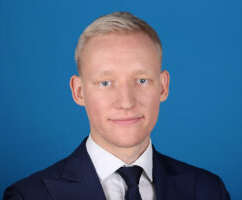Difference between revisions of "Karel Kullamaa"
(career) |
(description) |
||
| (One intermediate revision by one other user not shown) | |||
| Line 1: | Line 1: | ||
{{person | {{person | ||
|wikipedia= | |wikipedia= | ||
| − | | | + | |interests=Russian Propaganda |
|twitter= | |twitter= | ||
| − | |image= | + | |description=Estonian academic who was listed as a member of the [[Institute for Statecraft]] until the group took its website down. |
| + | |image=Karel Kullamaa.jpg | ||
|linkedin=https://ee.linkedin.com/in/kaarel-kullamaa | |linkedin=https://ee.linkedin.com/in/kaarel-kullamaa | ||
|nationality=Estonian | |nationality=Estonian | ||
| Line 11: | Line 12: | ||
|death_date= | |death_date= | ||
|death_place= | |death_place= | ||
| − | |constitutes= | + | |constitutes=academic |
| − | }}'''Karel Kullamaa''' is an Estonian academic listed as a member of the [[Institute for Statecraft]] until the group took its website down. | + | }}'''Karel Kullamaa''' is an Estonian academic who was listed as a member of the [[Institute for Statecraft]] until the group took its website down. |
| + | |||
| + | == Background == | ||
| + | Karel Kullamaa has a BA degree in government and politics from the [[University of Tartu]] and [[St. Petersburg State University]] and MA degree in European Studies from [[Aarhus University]]. In addition, he has undergone further training on cyberspace and the state, organized by the [[Oxford University]]’s Cyber Studies Programme and the University of Tartu’s Centre for the Information Society. | ||
==Career== | ==Career== | ||
| − | Kullamaa has worked both as an intern at the Estonian Foreign Policy Institute at the ICDS and as a project leader and advisor to the City Council of [[Tartu]] | + | Kullamaa has worked both as an intern at the Estonian Foreign Policy Institute at the ICDS and as a project leader and advisor to the City Council of [[Tartu]]. |
He joined the [[Estonian Foreign Policy Institute]] at the [[International Centre for Defence and Security]] in June [[2021]]. His research focuses on [[Eastern Europe]] with a focal point on [[Russia]] and EU-Russia relations. His previous studies have concentrated on Russian and the [[EU]]’s policies, [[propaganda|strategic communication]] as well as on the [[censorship|use of digital solutions to enhance state-building and security]]. | He joined the [[Estonian Foreign Policy Institute]] at the [[International Centre for Defence and Security]] in June [[2021]]. His research focuses on [[Eastern Europe]] with a focal point on [[Russia]] and EU-Russia relations. His previous studies have concentrated on Russian and the [[EU]]’s policies, [[propaganda|strategic communication]] as well as on the [[censorship|use of digital solutions to enhance state-building and security]]. | ||
| − | |||
| − | |||
{{SMWDocs}} | {{SMWDocs}} | ||
==References== | ==References== | ||
{{reflist}} | {{reflist}} | ||
Latest revision as of 22:47, 14 August 2022
(academic) | |
|---|---|
 | |
| Nationality | Estonian |
| Alma mater | University of Tartu, St. Petersburg State University, Aarhus University |
| Member of | Institute for Statecraft |
| Interests | “Russian Propaganda” |
Estonian academic who was listed as a member of the Institute for Statecraft until the group took its website down. | |
Karel Kullamaa is an Estonian academic who was listed as a member of the Institute for Statecraft until the group took its website down.
Background
Karel Kullamaa has a BA degree in government and politics from the University of Tartu and St. Petersburg State University and MA degree in European Studies from Aarhus University. In addition, he has undergone further training on cyberspace and the state, organized by the Oxford University’s Cyber Studies Programme and the University of Tartu’s Centre for the Information Society.
Career
Kullamaa has worked both as an intern at the Estonian Foreign Policy Institute at the ICDS and as a project leader and advisor to the City Council of Tartu.
He joined the Estonian Foreign Policy Institute at the International Centre for Defence and Security in June 2021. His research focuses on Eastern Europe with a focal point on Russia and EU-Russia relations. His previous studies have concentrated on Russian and the EU’s policies, strategic communication as well as on the use of digital solutions to enhance state-building and security.